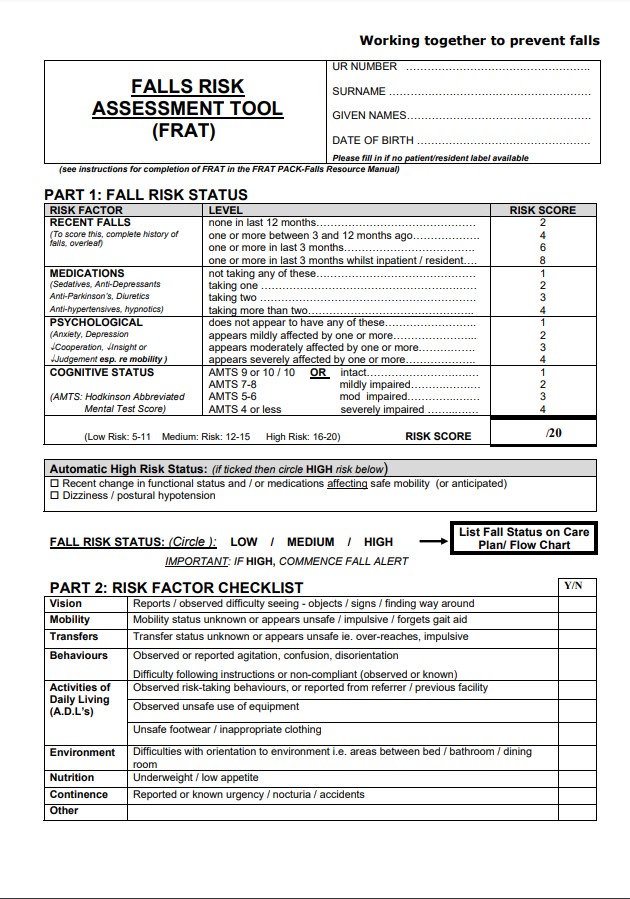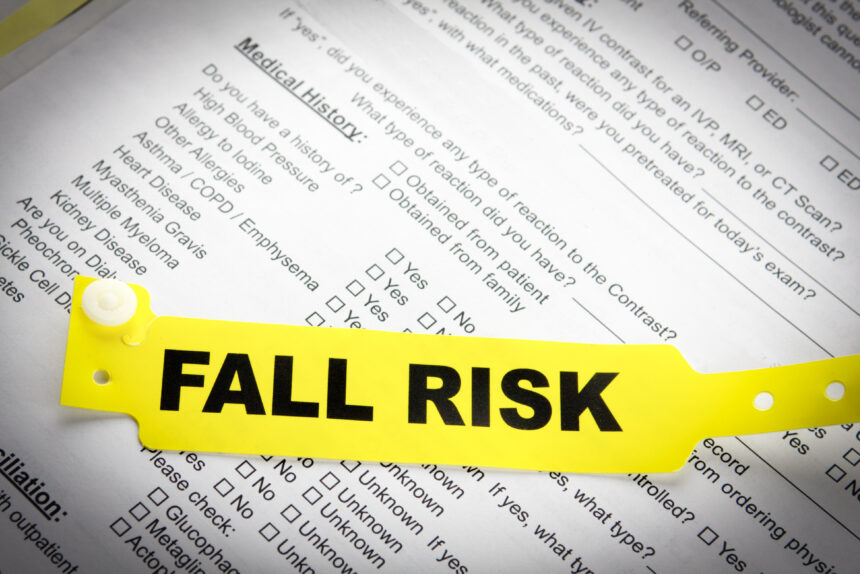The Ultimate Guide To Dementia Fall Risk
The Ultimate Guide To Dementia Fall Risk
Blog Article
The smart Trick of Dementia Fall Risk That Nobody is Talking About
Table of ContentsExamine This Report about Dementia Fall RiskNot known Details About Dementia Fall Risk The Definitive Guide to Dementia Fall RiskIndicators on Dementia Fall Risk You Need To Know5 Easy Facts About Dementia Fall Risk Shown
You may be anxious due to the fact that you've had a loss before or due to the fact that you've noticed you're starting to really feel unsteady on your feet. You could have seen adjustments to your wellness, or simply seem like you're slowing down a little. Whatever the reason, it isn't unusual to become cautious and shed self-confidence, and this can stop you doing the important things you utilized to do and make you really feel extra separated.If you've had a loss or you've begun to feel unsteady, tell your medical professional also if you feel great or else. Your medical professional can examine your equilibrium and the method you walk to see if renovations can be made. They may be able to refer you for a drops danger assessment or to the drops avoidance service.
This information can be gotten via meetings with the individual, their caregivers, and a review of their clinical documents. Begin by asking the specific concerning their background of falls, including the regularity and circumstances of any current drops. Dementia Fall Risk. Ask about any kind of mobility issues they may experience, such as unstable or problem strolling
Conduct a thorough evaluation of the individual's medicines, paying certain focus to those understood to increase the risk of drops, such as sedatives or medicines that lower blood pressure. Identify if they are taking several drugs or if there have been recent adjustments in their medicine program. Examine the person's home setting for potential dangers that could boost the danger of drops, such as bad illumination, loosened carpets, or lack of grab bars in the shower room.
The Only Guide for Dementia Fall Risk
Overview the individual with the autumn risk analysis type, explaining each inquiry and taping their reactions properly. Determine the total danger score based on the feedbacks supplied in the analysis type.
Regularly monitor the individual's progression and reassess their danger of drops as needed. Provide ongoing education and assistance to advertise safety and security and reduce the danger of falls in their daily living activities.
Lots of research studies have revealed that physical treatment can aid to reduce the risk of falling in grownups ages 65 and older. In a brand-new research (that took a look at drops danger in women ages 80 and older), scientists calculated the economic influence of selecting physical therapy to stop falls, and they imp source located that doing so saves $2,144, consisting of all the covert costs of your time, pain, missed out on life events, and the bucks spent for services.
The Best Strategy To Use For Dementia Fall Risk
Examining your balance, strength, and walking capacity. A home safety and security assessment. Based on the assessment results, your physical therapist will certainly make a plan that is tailored to your specific demands.
Older grownups who have problem strolling and chatting at the same time go to a greater danger of falling. Dementia Fall Risk. To help enhance your security throughout everyday tasks, your physical therapist may design a training program that will certainly challenge you to keep standing and walking while you do an additional task. Instances consist of walking or standing while counting backwards, having a discussion, or carrying a bag of groceries
Set goals for increasing their physical task. Exercise much more to boost their toughness and equilibrium. These programs usually are led by volunteer instructors.
The 10-Minute Rule for Dementia Fall Risk

Measles, or rubeola, is a very contagious, acute viral infectious condition created by the measles virus. Some individuals think of measles as just a breakout and high temperature that clears in a few days; nevertheless, measles can create major health and wellness problems, particularly in youngsters more youthful than 5-years-old. The very best protection versus measles is the measles, mumps, and rubella (MMR) vaccine.
Loss are a common root cause of injury amongst older grownups. According to the CDC, in one year alone, fall-related injuries added to over $50 billion in medical costs (Dementia Fall Risk). In medical facility settings, older grownups are at especially high risk of falls because their reduced wheelchair from being confined to a space or bed.
The 10-Second Trick For Dementia Fall Risk

She has a case history of seizure disorder and hypertension. She is getting an IV mixture and taking Gabapentin and Lasix. She has no history of falls, her gait is stable, and she invalidates without problems. The previous registered nurse states that she calls for help to the washroom when she requires to go.
Examples of common fall interventions/measures include: Ensuring a patient's vital items are available. Putting the person's bed rails up with the alarm on. Helping a client while they're standing up from bed. Beyond recognizing exactly how to use the Johns Hopkins Loss Threat Analysis Tool, it is necessary that facilities include its visit this web-site usage right into a much more extensive fall avoidance plan.
Report this page